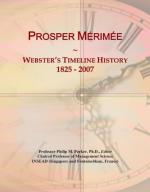|
This section contains 20,055 words (approx. 67 pages at 300 words per page) |

|
SOURCE: "Hero, Fate, and Literature," in Prosper Mérimée: Heroism, Pessimism, and Irony, University of California Press, 1962, pp. 84-145.
In the following excerpt, Bowman explores narrative technique, plot structure and devices, and the thematic operations of fate in Mérimée's fiction.
Psychological Realism
Although the average reader would consider Mérimée a realist, a precursor of Flaubert if not Zola, he himself unhesitantly castigated the new school of literary realism of the 1850's and 1860's, and had violent objections to Flaubert's method. He suggested that if he were a tyrant he would punish his enemies by making them read Salammbô. According to Mérimée, Flaubert had ruined his native talent by obeying a false aesthetic which demanded that he include in every novel careful, detailed, endless descriptions of boring countrysides and that he fill his pages with dull, false erudition.27 His disapproval of this...
|
This section contains 20,055 words (approx. 67 pages at 300 words per page) |

|


